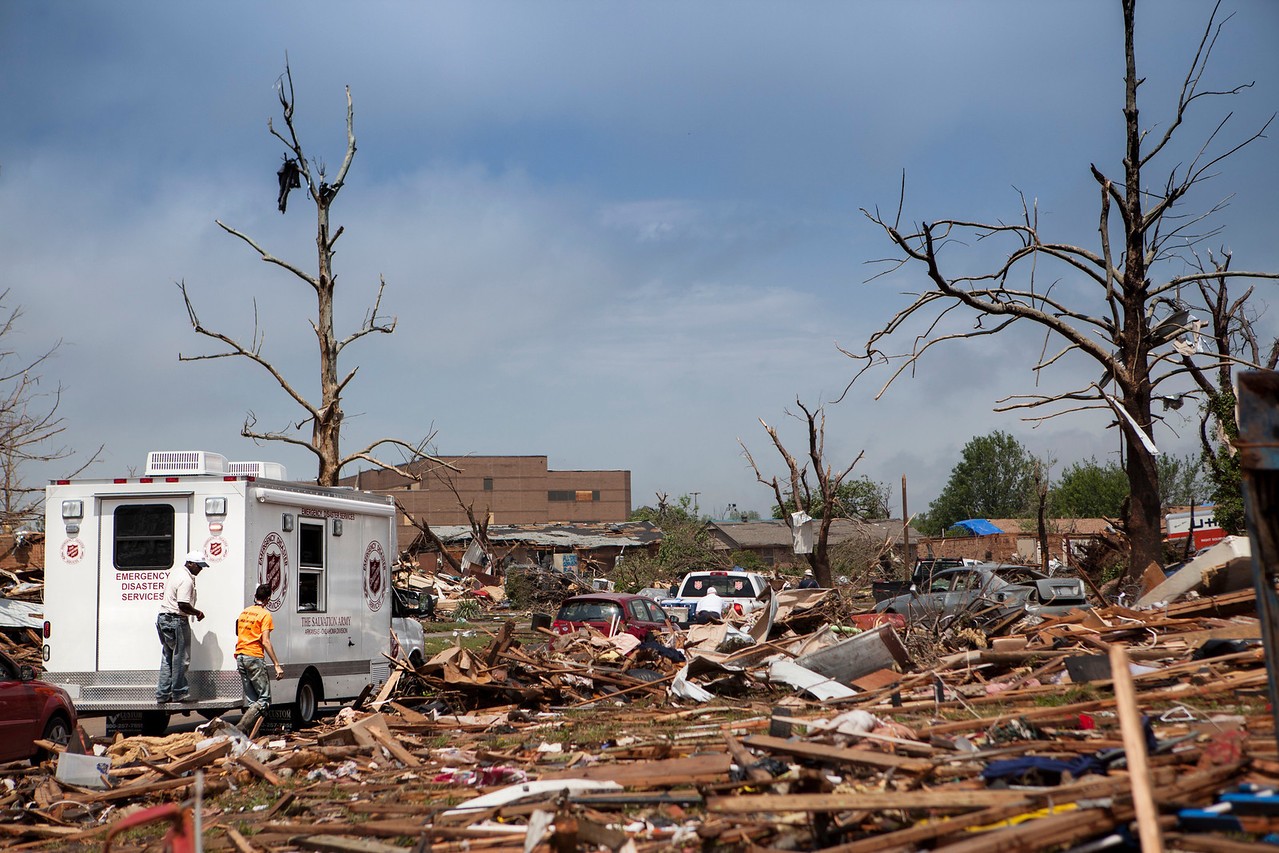Long After the Storm

As the Director of Emergency Disaster Services for The Salvation Army in three Gulf States, Will Trueblood is always on the alert. With a keen eye, he watches the sky anytime a weather warning comes in because, as the residents of Alabama, Louisiana, and Mississippi know too well, a natural disaster can strike at any time. The devastation these storms produce is why he and his army of volunteers work tirelessly to stay prepared.
In fact, the disaster relief work they do has been a hallmark of The Salvation Army for over a century. During the Galveston Hurricane of 1900, The Salvation Army embarked on a mission to assist in every natural disaster, regardless of when and where it might happen. Since then, The Salvationists have been on the scene each time, helping with recovery. Their relief efforts often include providing warm meals, cleaning up devastated communities, and even staying for the long term to ensure that every family has what they need to recover.
"The Salvation Army has been helping communities recover for a long time," said Director William Trueblood, "It doesn't matter if we are talking about the massive earthquake in 1906 in San Fransisco, the tragic events of 9-11, or even Hurricane Katrina in 2005; you will find our Salvation Army units deployed there serving in Jesus' name."
 The EDS unit of the ALM Division has been instrumental in responding to several recent large-scale natural disasters, such as Hurricane Ida in 2021 and the Mississippi Delta Tornados in 2023. In each case, the disaster team deployed multiple serving units across several counties and partnered with various relief organizations to provide essential services to those affected. However, what distinguishes The Salvation Army from other relief agencies is its continued presence and support for long-term recovery efforts, even after other organizations have left.
The EDS unit of the ALM Division has been instrumental in responding to several recent large-scale natural disasters, such as Hurricane Ida in 2021 and the Mississippi Delta Tornados in 2023. In each case, the disaster team deployed multiple serving units across several counties and partnered with various relief organizations to provide essential services to those affected. However, what distinguishes The Salvation Army from other relief agencies is its continued presence and support for long-term recovery efforts, even after other organizations have left.
"In a disaster, we want to provide aid as quickly as possible, so our units are on the ground serving within hours after an event," Trueblood stated. "But we also concentrate on the long-term effects these tragedies cause."
Hurricane Ida was Louisiana's second most destructive disaster event, and even after three years, The Salvation Army representatives are still there in those communities, helping residents. Long-term recovery often targets families who need funds to purchase essential appliances, clothing, and other household goods. Whether it is helping to finish construction on an underinsured home or replacing items like beds, furniture, or belongings, the efforts make an impact.
“There is always lots of help just after the event, and that is important, but it's not the full scope of true recovery. It takes years to help get some communities back on their feet. The Salvation Army is committed to the whole process. We won't abandon these families after the storm passes." Trueblood said. “The money we receive during a disaster stays local. Any money we have remaining after the initial response goes to help families purchase the things they need for everyday living."
Many people believe disaster relief is a matter of reacting when storm clouds gather, but the reality is far more intricate. Extensive hours of preparation and rigorous training are dedicated to readiness. In the ALM Division, a meticulously organized 20,000-square-foot warehouse stands fully stocked with supplies tailored for various disaster scenarios. This reserve includes over 10,000 pre-packaged meals, poised and ready for deployment. A dedicated staff of six diligently coordinates with numerous volunteers, springing into action whenever the need for assistance arises. The EDS staff spends its "blue sky" days getting ready for when the next storm hits. The emphasis is on preparedness so the team can respond immediately when the call comes.
"Blue sky days are the perfect opportunity to support the mission of The Salvation Army. People often give resources during a disaster event, but we depend on regular supporters throughout the year. Those funds enable us to keep our vehicles maintained and our supplies stocked because you never know when the next storm will come."
Trueblood was quick to sing the praises of the many volunteers who work tirelessly when a disaster happens. "We depend on our volunteers to help shoulder the load. We couldn't do it without them, but there is always room for more volunteers to join us if they would like,"
To help get the word out about the ministry, the Emergency Disaster Relief team can speak at events or social gatherings. If you want them to talk to your organization, contact the ALM Divisional headquarters and ask to speak with the Emergency Disaster office.
